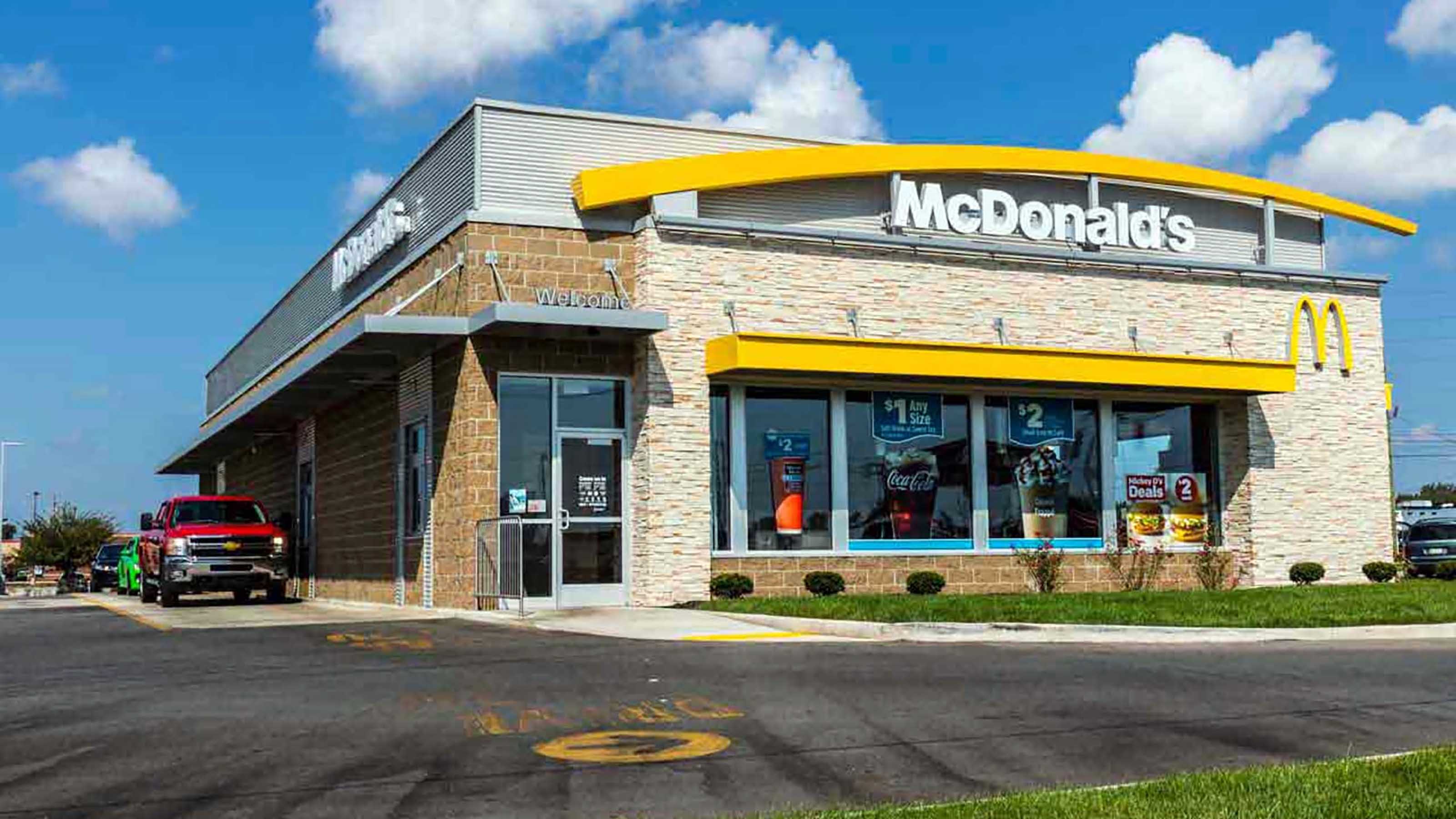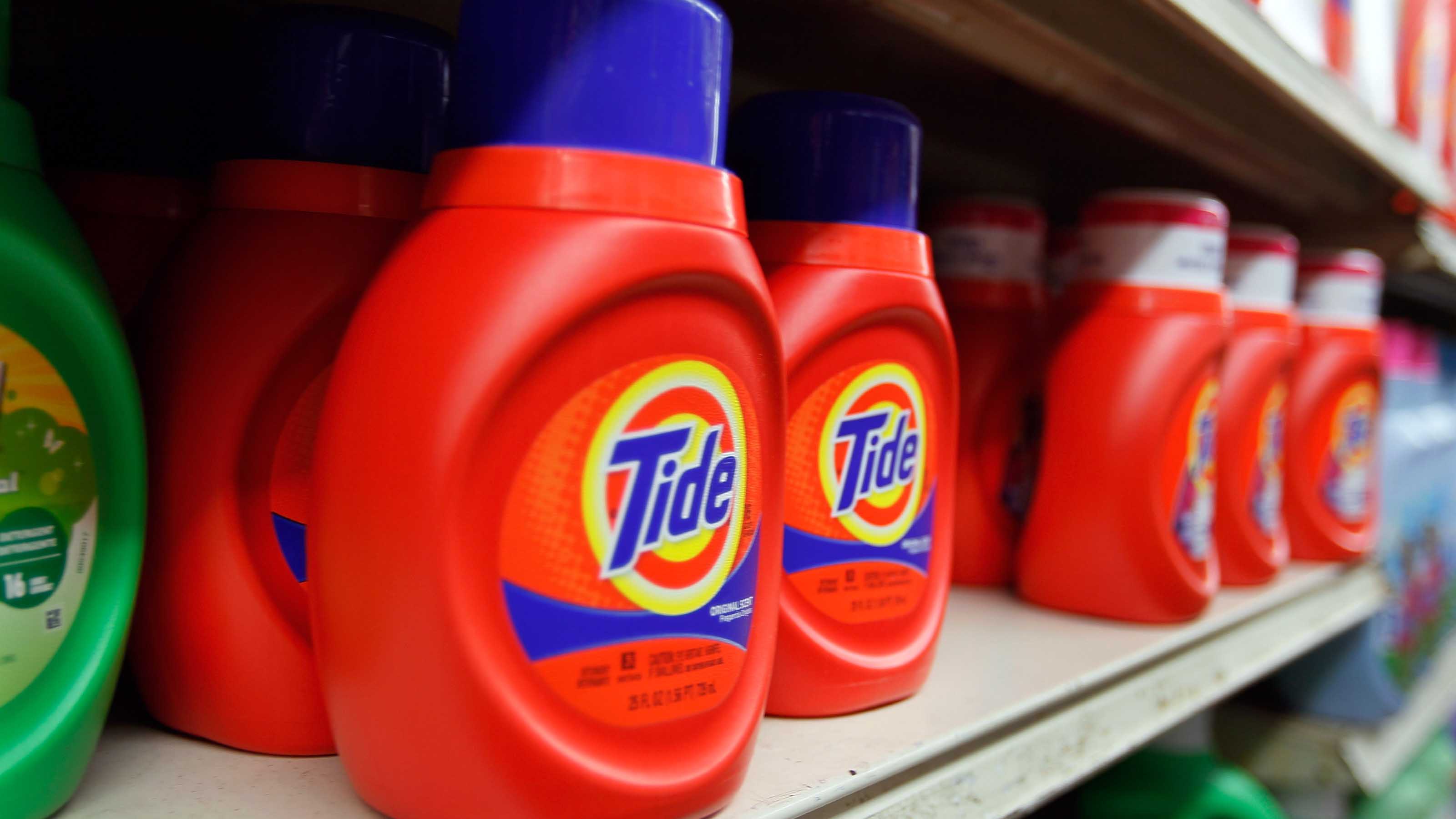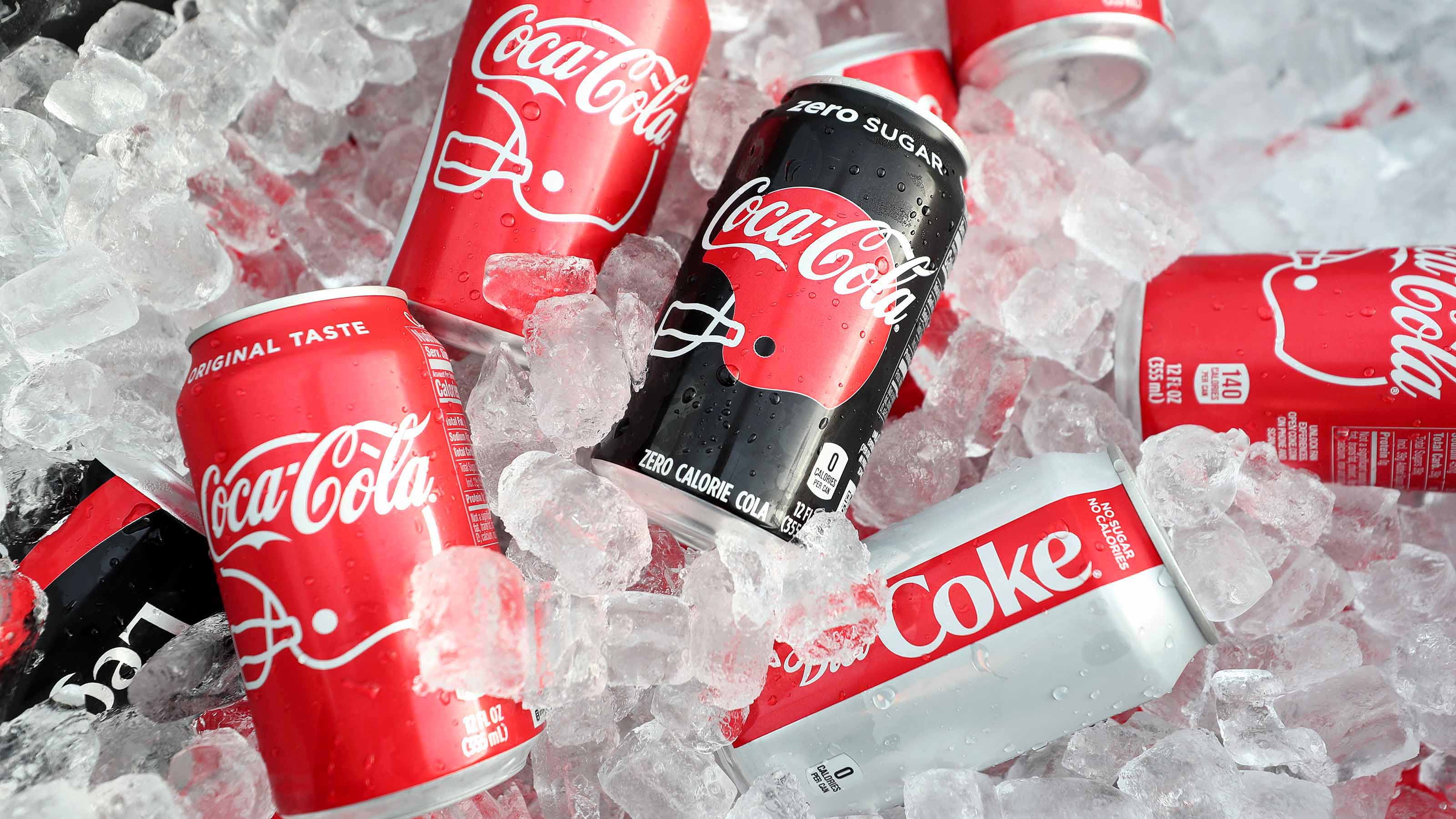7 Best Low-Volatility Stocks to Buy
The best low-volatility stocks help investors hedge during broad-market downturns.


Profit and prosper with the best of Kiplinger's advice on investing, taxes, retirement, personal finance and much more. Delivered daily. Enter your email in the box and click Sign Me Up.
You are now subscribed
Your newsletter sign-up was successful
Want to add more newsletters?

Delivered daily
Kiplinger Today
Profit and prosper with the best of Kiplinger's advice on investing, taxes, retirement, personal finance and much more delivered daily. Smart money moves start here.

Sent five days a week
Kiplinger A Step Ahead
Get practical help to make better financial decisions in your everyday life, from spending to savings on top deals.

Delivered daily
Kiplinger Closing Bell
Get today's biggest financial and investing headlines delivered to your inbox every day the U.S. stock market is open.

Sent twice a week
Kiplinger Adviser Intel
Financial pros across the country share best practices and fresh tactics to preserve and grow your wealth.

Delivered weekly
Kiplinger Tax Tips
Trim your federal and state tax bills with practical tax-planning and tax-cutting strategies.

Sent twice a week
Kiplinger Retirement Tips
Your twice-a-week guide to planning and enjoying a financially secure and richly rewarding retirement

Sent bimonthly.
Kiplinger Adviser Angle
Insights for advisers, wealth managers and other financial professionals.

Sent twice a week
Kiplinger Investing Weekly
Your twice-a-week roundup of promising stocks, funds, companies and industries you should consider, ones you should avoid, and why.

Sent weekly for six weeks
Kiplinger Invest for Retirement
Your step-by-step six-part series on how to invest for retirement, from devising a successful strategy to exactly which investments to choose.
Low-volatility stocks are ports in a storm for investors who can't stomach violent market swings. Their relatively tranquil behavior can not only help reduce losses in a downturn – they can stay your hand, preventing you from panic selling and potentially ruining your retirement.
Now, the market is consolidating gains to start the new year following a big run higher in 2023, though the pullback has been modest. However, I'm sorry to say low-vol stocks still might be of use this year, for several reasons.
"The equity and bond markets appear to be pricing in quickly falling inflation and a Federal Reserve that cuts rates potentially six times this year, all followed by an economic recovery in the second half of the year that allows the earnings growth rate for the S&P 500 Index to exceed 10% in 2024 relative to last year," says Scott Wren, senior global market strategist at Wells Fargo Investment Institute.
While each of those certainly has some chance of occurring, "we think the 'Street' is overly optimistic in betting that such a rosy outcome is likely," Wren adds. "In other words, we think it is wise for investors to expect some giveback in equities and some volatility in bonds, particularly in the first half of this year, before brighter economic skies become more apparent in the second half and as we head into 2025."
But that's the risk you take with these strategies, including with equities and low-volatility ETFs. If you hold low-vol stocks and chaos arrives, chances are they'll buoy your performance – but if there's no tumult and stocks broadly ascend, those low-vol holdings could lag.
S&P Global conducted a study of the S&P 500 low-volatility and high-beta indices, including 10 years of backtested performance before their founding in April 2011, and a little more than 10 years of live performance after that. It found that low volatility outperformed by the most, and most often, in the worst market environments; as market environments improved, it outperformed less frequently and its performance differentials declined.
If you're aware of (and OK with) this risk, however, low-vol stocks can be a useful addition to your portfolio.
Read on as we look at seven low-volatility stocks to buy now. The following stocks all sport low "beta" – a measurement of how volatile an investment is to a relevant benchmark. If a stock has a beta of less than 1.0, for instance, that theoretically means it's less volatile than the S&P 500; if it's greater than 1.0, the stock is more volatile. They also enjoy high ratings from Wall Street analysts and deliver above-average dividends, which can help boost performance when price gains are lacking.
Data is as of January 18. Average price targets and analyst ratings provided by S&P Global Market Intelligence. Dividend yields are calculated by annualizing the most recent payout and dividing by the share price.

Entergy
- Market value: $20.9 billion
- Beta (1-year): 0.53
- Beta (5-year): 0.70
- Dividend yield: 4.5%
- Analysts' consensus recommendation: 1.90 (Buy)
- Analysts' ratings: 10 Strong Buy, 4 Buy, 5 Hold, 0 Sell, 1 Strong Sell
Utility stocks have a reputation for being dependable low-volatility plays given the nature of their business. Much like people need food and personal products (consumer staples) and prescriptions (healthcare), they also need electricity, gas and water – which are provided by utility companies.
It makes sense in theory, but it doesn't always play out that way – utilities actually underperformed the S&P 500 during the COVID crash, for instance – but they held their own in 2022 as the market sold off.
Entergy (ETR, $98.86) is no exception. The southern utility company – which serves 3 million customers in Arkansas, Louisiana, Mississippi and Texas – underperformed both the market and the utility sector during the COVID bear, shedding more than 40% even with dividends included. But it has had a good run in 2022, finishing the year up 3.5%.
UBS sees reason for more optimism going forward.
"We believe the recent settlement with Arkansas around litigation with ETR's SERI segment removes a substantial amount of the financial risk that has long been an overhang on the stock," says UBS Global Research analyst Ross Fowler, who recently upgraded ETR to Buy from Neutral (Hold). "This should clear the way to investors to focus on the upcoming financial outlook update at the EEI conference where we believe the capex will be revised higher and the company can provide credible support to achieving and sustaining the midpoint of its 6% to 8% annual earnings per share growth plan."
Meanwhile, Entergy makes this list of the best low-volatility stocks by merit of its subdued betas, which imply ETR shares have been roughly 40% less volatile than the broader market over the short- and medium-term. The dividend is a nice sweetener, too – at 4.5%, it clobbers the S&P 500 and is well higher than most utility-sector exchange-traded funds.

McDonald's
- Market value: $213.5 billion
- Beta (1-year): 0.87
- Beta (5-year): 0.71
- Dividend yield: 2.3%
- Analysts' consensus recommendation: 1.68 (Buy)
- Analysts' ratings: 21 Strong Buy, 8 Buy, 9 Hold, 0 Sell, 0 Strong Sell
McDonald's (MCD, $294.35) is a global burger juggernaut, boasting 40,000 locations in more than 100 countries. And it has been a paragon of relative stability for years. The company managed to keep its top and bottom lines on the upswing during COVID, and it's expected to extend streaks of revenue and income growth this year.
MCD has also delivered income consistency for nearly a half-century, with the Dividend Aristocrat doling out 47 consecutive years of uninterrupted payout growth.
That said, McDonald's appeal isn't just its dogged reliability, but its ability to innovate. Remember: This is a company that helped pioneer the drive-through, and a glance behind counter reveals kitchen and service machinery that's designed for ruthless efficiency.
And its forward-thinking management continues to propel the company today.
"MCD has laid the groundwork for ongoing share gains through innovative marketing, multi-year investments in its restaurant estate, and ongoing digital spend," says BofA Global Research.
Stable as the company might be, there are reasons for concern. Inflationary headwinds continue to threaten margins. And we'll note BofA has a Neutral rating on the company because of an "elevated" valuation.
Wedbush (Outperform) is more positive, however. "We believe MCD's ongoing menu (including value), technology, marketing, and capital expenditures investments render visibility into sustained annual low-single-digit/mid-single-digit global same-store sales growth high even in a slowing global consumer spending environment," analysts Nick Setyan and Michael Symington say. Their positive rating mirrors the Wall Street consensus, which includes a total of 29 Buy or Strong Buy ratings versus nine Holds and not a single Sell.

Procter & Gamble
- Market value: $349.2 billion
- Beta (1-year): 0.42
- Beta (5-year): 0.45
- Dividend yield: 2.5%
- Analysts' consensus recommendation: 2.00 (Buy)
- Analysts' ratings: 12 Strong Buy, 4 Buy, 8 Hold, 2 Sell, 0 Strong Sell
Nothing says security and stability like toothpaste and toilet paper.
When times are good and your wallet is fat, you're more than happy to buy things like sneakers, a new purse and video games, and go out more often to restaurants and movie theaters. And when times are tight, you might cut back on that kind of spending.
But no matter what the economy is doing, you need to brush your teeth, and you need to wipe your … well, you get where we're going with this. Those products – as well as foods, drinks, and a few other necessities – are consumer staples, and the companies that provide these products tend to be stable performers and offer higher-than-average dividends.
Enter Procter & Gamble (PG, $148.14), which is one of the world's top consumer staples brands. It's responsible for Always feminine hygiene products, Charmin toilet paper, Crest toothpaste, Dawn soaps and Head & Shoulders shampoos, among dozens of other ubiquitous brands.
The consistent profits P&G can squeeze out of those brands has enabled the company to deliver dividends without interruption since 1890, including 67 consecutive years of rising payouts – easily qualifying it for Dividend Aristocrat status. In other words, it's one of Wall Street's best dividend stocks.
In addition to Procter & Gamble being relatively stable, with low betas indicating smoother performance compared to the market for several years, it's well-positioned for the long haul.
"We look for long-term earnings and share price gains to be driven by product innovation, productivity improvements, and better advertising," says Argus Research analyst Taylor Conrad (Buy). "Innovative products such as Dawn Powerwash, which helps to dissolve baked-on food from pots and pans, are gaining market share. This type of product innovation has also enabled P&G to raise prices to offset inflation, even as some customers trade down to store brands or to less expensive brands within the P&G portfolio."

Coca-Cola
- Market value: $260.1 billion
- Beta (1-year): 0.54
- Beta (5-year): 0.57
- Dividend yield: 3.1%
- Analysts' consensus recommendation: 1.81 (Buy)
- Analysts' ratings: 13 Strong Buy, 7 Buy, 6 Hold, 1 Sell, 0 Strong Sell
Coca-Cola (KO, $60.16) is another Dividend Aristocrat from the consumer staples sector that manages to stay chill when the market sweats.
Coca-Cola, of course, is far more than its namesake pop. It sells 200 brands – including Aha sparkling waters, Costa Coffee, Dasani bottled waters, Gold Peak Tea, Minute Maid and Simply juices, and Powerade sports drinks – in more than 200 countries and territories.
Like any low-volatility stock, Coca-Cola isn't immune from all turbulence. While we tend to think about the company's bottles and cans, a sizable chunk of KO's revenue come from distributing its products through restaurants. So while most of us might have drank a little more Coke at home during COVID, restaurant-based consumption fell off a cliff, knocking revenues at profits back a peg in 2020.
Coca-Cola's back on the rebound, though, and looking for more ways to grow. And that growth is very likely to come not from the U.S. nor other developed countries, but emerging markets.
And Wedbush analysts Gerald Pascarelli and Antoine Legault see KO as a "grind higher stock," given its a history of consistent beat and raises" and "with the shares still trading well below historical one-, three-, and five-year average multiples." The two have an Outperform rating on KO, which is the equivalent of a Buy.
Coca-Cola is also among the ranks of the Aristocrats, dropping larger payouts into investment accounts every year for more than six decades. Income investors will also love KO's 3.1% yield, which is among the highest among these low-vol stocks and more than twice what the S&P 500 yields.

Mondelez International
- Market value: $99.2 billion
- Beta (1-year): 0.58
- Beta (5-year): 0.63
- Dividend yield: 2.3%
- Analysts' consensus recommendation: 1.48 (Strong Buy)
- Analysts' ratings: 15 Strong Buy, 8 Buy, 2 Hold, 0 Sell, 0 Strong Sell
Mondelez International (MDLZ, $72.91) is another consumer staples name that's responsible for many of the snacks not just in your pantry – but in pantries across the world.
That's why its leading brands are a mix of both the familiar and unfamiliar (well, at least to us). If you're a U.S.-based reader, you'll be plenty familiar with Chips Ahoy! and Oreo cookies, Honey Maid graham crackers, Sour Patch Kids candies, Philadelphia Cream Cheese, Trident gum and Toblerone's bizarrely shaped chocolate bars. But Mondelez also makes TUC crackers, which are big in Europe; Clorets gum and mints, which slay across several continents; and Kinh Do mooncakes, which is a top snack in Vietnam.
Mondelez became its own publicly traded entity back in late 2012, when it was spun out from Kraft Heinz (KHC). It admittedly hasn't held a candle to the market since then, performance-wise, with its 230% total return lagging the S&P 500 by 110 percentage points. But it has been far less volatile and done much better during downturns.
The 2024 outlook is appropriately boring but upbeat, which is what we want, or at least expect, out of mega-cap consumer staples stocks. "Looking ahead to fiscal 2024, we estimate over 6.5% organic sales growth and earnings per share of $3.38, reflecting 8% constant currency growth," say Stifel analysts, who rate the stock a Buy. " We find the valuation for the shares attractive for a company with this balanced growth profile as well as a strong balance sheet, cash flow generation, and value creating M&A activity."
As a standalone company, Mondelez has a relatively short dividend track record compared to these other low-volatility stocks. But it has still kept the pedal down on its payout every year since breaking off of Kraft.

Merck
- Market value: $300.3 billion
- Beta (1-year): 0.27
- Beta (5-year): 0.35
- Dividend yield: 2.6%
- Analysts' consensus recommendation: 1.62 (Buy)
- Analysts' ratings: 17 Strong Buy, 6 Buy, 6 Hold, 0 Sell, 0 Strong Sell
There are few more stable healthcare stocks than Merck (MRK, $118.54). It is one of the largest pharmaceutical players in the world, led by cancer wonder-drug Keytruda – itself a $6.3 billion business during the third quarter of 2023 alone, which, by the by, was 17% higher than in the year-ago period. The company's product lineup also includes HPV vaccine Gardasil, neuromuscular blockade treatment Bridion and ovarian cancer drug Lynparza, not to mention a billion-dollar-plus animal health division.
Merck is one of the coolest cucumbers on the market – over the past five years, it has been 65% less volatile than the S&P 500, based on beta. And over the past year? 73% less volatile.
Typically, less volatility than the market during a downturn is a boon, and that's absolutely the case with Merck, which delivered a 49.4% total return (price returns plus dividends) in 2022 compared to the S&P 500's 18.1% decline.
Mizuho seems to think the good times will continue.
While a central question for investors has been Keytruda's dominance once exclusivity ends in 2028, "our thesis on MRK has been that the company would be able to maintain itself through a combination of internal development, licensing and acquisitions, and we see the current pipeline having that critical mass where investors can begin to visualize MRK's profit and loss through crucial years," says Mizuho analyst Mara Goldstein. The analyst has a Buy rating on MRK and calls it a "top pick" for 2024.
Also worth noting: Merck might not be a Dividend Aristocrat – a streak of flat payouts during the Great Recession disqualified it – but it still holds a place among reliable dividend stocks. The payout hasn't taken a step back for roughly half a century, and it has grown unfettered for a decade.

Assurant
- Market value: $8.7 billion
- Beta (1-year): 0.54
- Beta (5-year): 0.50
- Dividend yield: 1.7%
- Analysts' consensus recommendation: 1.33 (Strong Buy)
- Analysts' ratings: 4 Strong Buy, 2 Buy, 0 Hold, 0 Sell, 0 Strong Sell
The best-rated stock here is a decided oddball on any list of low-volatility stocks: a financial-sector entrant that deals with insurance.
That said, Assurant (AIZ, $166.58) isn't your average insurer.
Assurant provides a range of niche insurance products. For instance, if you've ever bought insurance for your mobile phone, a computer, or a piece of furniture, it's possible that Assurant had its hand in that. Assurant's services also span multifamily and manufactured residential insurance, vehicle protection plans, flood insurance and more.
That makes it a much different, and much more diversified, insurer than most of the rest of its industry.
Like just about any other business, Assurant faces its share of hurdles in today's economy: "Elevated catastrophe activity, the loss of a major client/distribution partner, a decline in interest rates, higher competitive levels, and a major breach of data security" all present risks to the stock, says William Blair's Jeff Schmidt.
But he remains positive on AIZ shares, rating them Outperform "as a strong rebound in Global Housing results and the reemergence of share buybacks should drive" earnings per share growth.
Lastly: Assurant is another prolific dividend raiser, boasting uninterrupted payout growth since 2004.
Related content
Profit and prosper with the best of Kiplinger's advice on investing, taxes, retirement, personal finance and much more. Delivered daily. Enter your email in the box and click Sign Me Up.
Kyle Woodley is the Editor-in-Chief of WealthUp, a site dedicated to improving the personal finances and financial literacy of people of all ages. He also writes the weekly The Weekend Tea newsletter, which covers both news and analysis about spending, saving, investing, the economy and more.
Kyle was previously the Senior Investing Editor for Kiplinger.com, and the Managing Editor for InvestorPlace.com before that. His work has appeared in several outlets, including Yahoo! Finance, MSN Money, Barchart, The Globe & Mail and the Nasdaq. He also has appeared as a guest on Fox Business Network and Money Radio, among other shows and podcasts, and he has been quoted in several outlets, including MarketWatch, Vice and Univision. He is a proud graduate of The Ohio State University, where he earned a BA in journalism.
You can check out his thoughts on the markets (and more) at @KyleWoodley.
-
 Quiz: Do You Know How to Avoid the "Medigap Trap?"
Quiz: Do You Know How to Avoid the "Medigap Trap?"Quiz Test your basic knowledge of the "Medigap Trap" in our quick quiz.
-
 5 Top Tax-Efficient Mutual Funds for Smarter Investing
5 Top Tax-Efficient Mutual Funds for Smarter InvestingMutual funds are many things, but "tax-friendly" usually isn't one of them. These are the exceptions.
-
 AI Sparks Existential Crisis for Software Stocks
AI Sparks Existential Crisis for Software StocksThe Kiplinger Letter Fears that SaaS subscription software could be rendered obsolete by artificial intelligence make investors jittery.
-
 Stocks Make More Big Up and Down Moves: Stock Market Today
Stocks Make More Big Up and Down Moves: Stock Market TodayThe impact of revolutionary technology has replaced world-changing trade policy as the major variable for markets, with mixed results for sectors and stocks.
-
 Small Caps Step Up, Tech Is Still a Drag: Stock Market Today
Small Caps Step Up, Tech Is Still a Drag: Stock Market TodayEarly strength gave way to AI skepticism again as a volatile trading week ended on another mixed note.
-
 AI Unwind Takes 2% Off the Nasdaq: Stock Market Today
AI Unwind Takes 2% Off the Nasdaq: Stock Market TodayMarkets are paying more and more attention to hyperscalers' plans to spend more and more money on artificial intelligence.
-
 Big Change Coming to the Federal Reserve
Big Change Coming to the Federal ReserveThe Lette A new chairman of the Federal Reserve has been named. What will this mean for the economy?
-
 Strong Jobs Report Leaves Markets Flat: Stock Market Today
Strong Jobs Report Leaves Markets Flat: Stock Market TodayInvestors, traders and speculators are taking time to weigh the latest labor market data against their hopes for lower interest rates.
-
 Job Growth Sizzled to Start the Year. Here's Why It's Unlikely to Impact Interest Rates
Job Growth Sizzled to Start the Year. Here's Why It's Unlikely to Impact Interest RatesThe January jobs report came in much stronger than expected and the unemployment rate ticked lower to start 2026, easing worries about a slowing labor market.
-
 Dow Hits New High Ahead of January Jobs Report: Stock Market Today
Dow Hits New High Ahead of January Jobs Report: Stock Market TodayA weak reading on December retail sales was in focus ahead of Wednesday's delayed labor market data.
-
 Tech Stocks Fuel Strong Start to the Week: Stock Market Today
Tech Stocks Fuel Strong Start to the Week: Stock Market TodayThe blue-chip Dow Jones Industrial Average extended its run above 50,000 on Monday and there are plenty of catalysts to keep the 30-stock index climbing.

